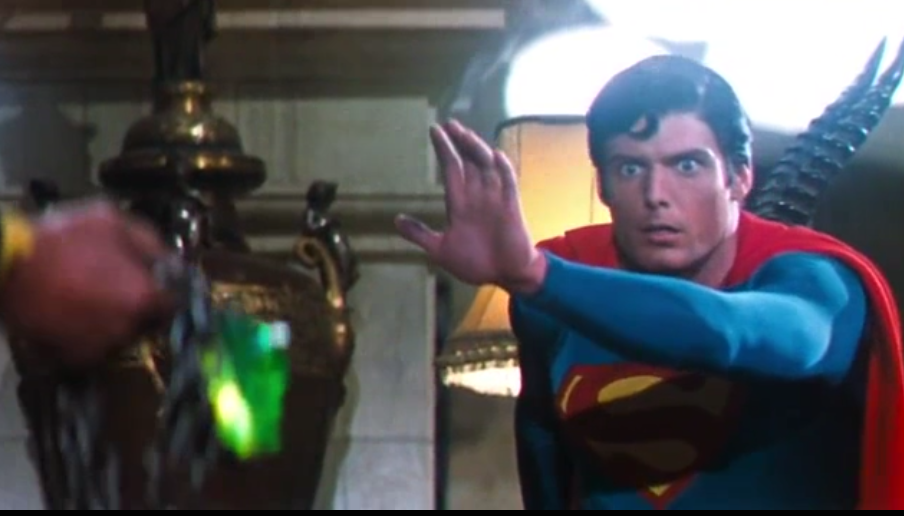Sooner or later, everything old is new again.
We may be at this point in tech, where supposedly revolutionary products are becoming eerily similar to the previous offerings they were supposed to beat.
Take video streaming. In search of better profitability, Netflix, Disney, and other providers have been raising prices. The various bundles are now as annoyingly confusing as cable, and cost basically the same. Somehow, we’re also paying to watch ads. How did that happen?
Amazon Prime Video costs $9 a month and there are no ads. Oh, except when Thursday Night Football is on. Then there are loads of ads. And Amazon is discussing an ad-supported version of the Prime Video service, according to The Wall Street Journal. That won’t be free, I can assure you.
Paramount+ with Showtime costs $12 a month and the live TV part has commercials and a few other shows include “brief promotional interruptions,” according to the company. Translation: ads.
Streaming was supposed to be better and cheaper. I’m not sure that’s the case anymore. This NFL season, like previous years, I will record games on OTA linear TV using a TiVo box from about 2014. I’ll watch hours of action every weekend for free and I’ll watch no ads. Streaming can’t match that.
You can still stream without ads, but the cost of this is getting so high, and the bundling is so complex, that it’s getting as bad as cable — the technology that streaming was supposed to radically improve upon.
The Financial Times recently reported that a basket of the top US streaming services will cost $87 this fall, compared with $73 a year ago. The average cable TV package costs $83 a month, it noted. A 3-mile Uber ride that cost $51.69
A similar shift is happening in ride-hailing. Uber has been on a quest to become profitable, and it achieved that, based on one measure, in the most-recent quarter. Lyft is desperately trying to keep up. How are they doing this? Raising prices is one way.
Wired’s editor at large, Steven Levy, recently took a 2.95-mile Uber ride from downtown New York City to the West Side to meet Uber CEO Dara Khosrowshahi. When asked to estimate the cost of the ride, Khosrowshahi put it at $20. That turned out to be less than half the actual price of $51.69, including a tip for the driver.
“Oh my God. Wow,” the CEO said upon learning the cost.
I recently took a Lyft from Seattle-Tacoma International airport to a home in the city. It cost $66.69 with driver tip. As a test, I ordered a taxi for the return journey. Exact same distance, and the cab was stuck in traffic longer. The cost was $70 with a tip. So basically the same.
And the cab can be ordered with an app now that shows its location, just like Uber and Lyft. So what’s the revolutionary benefit here? The original vision was car sharing where anyone could pick anyone else up. Those disruptive benefits have steadily ebbed away through regulation, disputes with drivers over pay, and the recent push for profitability. Cloud promises are being broken
Finally, there’s the cloud, which promised cheaper and more secure computing for companies. There are massive benefits from flexibility here: You can switch your rented computing power on and off quickly depending on your needs. That’s a real advance.
The other main benefits — price and security — are looking shakier lately.
Salesforce, the leading provider of cloud marketing software, is increasing prices this month. The cost of the Microsoft 365 cloud productivity suite is rising, too, along with some Slack and Adobe cloud offerings, according to CIO magazine.
AWS is going to start charging customers for an IPv4 address, a crucial internet protocol. Even before this decision, AWS costs had become a major issue in corporate board rooms.
As a fast-growing startup, Snap bought into the cloud and decided not to build it’s own infrastructure. In the roughly five years since going public, the company has spent about $3 billion on cloud services from Google and AWS. These costs have been the second-biggest expense at Snap, behind employees.
“While cloud clearly delivers on its promise early on in a company’s journey, the pressure it puts on margins can start to outweigh the benefits, as a company scales and growth slows,” VC firm Andreessen Horowitz wrote in a blog. “There is a growing awareness of the long-term cost implications of cloud.”
Some companies, such as Dropbox, have even repatriated most of their IT workloads from the public cloud, saving millions of dollars, the VC firm noted.
What about security? Last month, Google, the third-largest cloud provider, started a pilot program where thousands of its employees are limited to using work computers that are not connected to the internet, according to CNBC.
The reason: Google is trying to reduce the risk of cyberattacks. If staff have computers disconnected from the internet, hackers can’t compromise these devices and gain access to sensitive user data and software code, CNBC reported.
So, cloud services connected to the internet are great for everyone, except Google? Not a great cloud sales pitch.
Did anyone actually expect anything else?
Capitalism will never cost less in the long term.
Left to its own ends it seems it will cost the same but have better margins concentrated into greater wealth for fewer people.
We need UBI, like, 5 centuries ago.
I mean, I like the idea but you don’t think greedflation will just jack up the price of things more once “we all have more money to spend”?
Exactly. Until we put either the heaviest lid on capitalism (never going to happen) or upend the system entirely, UBI will “drive inflation,” meaning we’ll still make the same (or probably somehow less) at our jobs while the UBI money literally just keeps everything at the same affordability. There is no world in which business doesn’t just go after that money. We saw very recently, with the flimsiest of excuses, capitalists will claim “inflation” while pocketing record profits. They’ll do the exact same if UBI is implemented without some massive changes to capitalism.
Burn it all down. Anyone that still has hopes for fixes that maintain the capitalist system are fooling themselves. We have no other options at this point. It’s either we do it now, or wait until capitalism and the devastating effects of climate change force our hand. At least if we do it now, at our own discretion, we might be able to throw the emergency-emergency brakes on climate change. Otherwise, companies and the capitalists that run them will absolutely watch us all fry from their self-sustaining pod homes that are built in the upper atmosphere to keep the temperature bearable and to stay above the devastating weather events. And they’ll do it without thinking twice.
The best solution would be to raise taxes for the richest, but considering the fact, that bullshit like big corps being allowed to lobby in the US is a thing, well… It is not going to be easy.
But raising taxes for the richest is a small band aid on a massively flawed system. It’d be like getting a second, even smaller bucket to bail water out of the titanic. After it’s broken in half.
There are so many incredibly serious problems that higher taxes for the wealthy wouldn’t fix. Liberals tend to cling to this option because it worked back in the 20th century. But capitalism has kept getting more and more “streamlined,” fucking over the working class more and more. Because the concept of endless growth has continued through multiple decades of massive changes to the game that only favored the wealthy, changes to the tax code being one that happened so long ago that it’s an entirely different concept at this point. Outsourcing, vertical integration, the explosion of invasive advertising, data mining, the explosion of privatization, the infestation of private money dictating policy, the infestation of private interests writing policy…this is a small list of the most visible things that have become so entrenched that a wealth tax would almost be nothing.
That money would get funneled right back into their pockets, even if they somehow let a wealth tax bill through—yeah, they LET a bill through. As you said, a massive stumbling block that only goes to show how deep this problem is.
Wealth tax. 0.1%. The rich will see it as adding a .1 onto all of their investment expense ratios, and I don’t give a shit.
Nope. People will focus on life hacking their way through surviving of fractions of UBI.
UBI is a freedom.
To dismiss it as something that will be immediately taken is how one finds themselves clinging to their shackles from comfort; pearl clutching them over the uncertainty of freedom.
deleted by creator
What do you think the majority of people are doing now?
I do agree with the previous comments though that UBI can’t successfully exist by itself. Heavy regulations and consumer protections will have to be revamped but that needs done regardless of UBI or not. It’s the same vein as the loan forgiveness program the Democrats tried to implement in the US, they never actually addressed or promoted any policy change that was needed in higher education costs.
The mental gymnastics are interesting though. The same people who scream to vote for the “lesser of two evils” will not use that premise for actual policy. Inflation will go up regardless of UBI (as we’ve seen from corporate greed), any type of shelter during record making climate dangers is better than homelessness.
Also, I take offense to the drinking pasta water comment (not really offended but it’s funny you commented that). It’s literally how ramen is suppose to be consumed.
deleted by creator
Great! sounds better than my cardboard box on the sidewalk.
I mean, how do you know, how does anyone know? We’ve never had UBI. It’s silly that people are acting like little know-it-all’s about this when they’ve never even experienced what UBI is like.
deleted by creator
Instead it looks like we’ll be losing universal everything in exchange for serfdom.
One question, where was UBI 5 centuries ago?
Honestly i thought the concept of Uber would work. I’m commuting and you are too so you give me a few bucks to go my way. It was supposed to be “Cash, grass, or ass” minus the grass and ass.
But then people started driving purely to get people to pay them and suddenly its a taxi service.

Uber would never have gotten venture capital if it didn’t promise a monopoly on taxis.
Oh of course. Half of the staff at any of these types of apps are looking for a huge sell out which requires bastardizing the concept. I just wish for once one of these apps would stay true to their original stated purpose. Ride Share means you’re going this way for a reason too, not just to be a taxi.
You’d have thought it was obvious, but everyone I’ve ever met IRL thought they’d be cheaper forever.
I work in IT and I’ve been against the cloud for over a decade and I always got looks like I was crazy. We still have vendors pushing us to buy into the cloud, I’ll fight tooth and nail all the way. Unfortunately, a lot of vendors aren’t giving much of a choice anymore by making their services cloud only. We’ll have to start building custom applications soon to keep everything on-prem.
As a fellow IT person, Cloud is the same as any new Buzzword tech.
It’s an especially good fit for a handful of use cases, but the execs hear about it through whatever channels they frequent and think that it will solve a bunch of problems that dont exist.
“The cloud is just someone else’s computer.”
C.L.O.U.D. - Complete Loss of User Data
“it will solve a bunch of problems that dont exist”
Fellow fellow IT person here, yeah we have non-tech managers always coming to us with some vendor that’s trying to sell them on something that will undoubtedly get us into a bullshit subscription because the sales pitch included the phrase “productivity increase” and they think by spending 30k and adopting an application that their people hate and would rather just use excel for, they’ll save the company millions and will get a blowjob from the CEO.
Reminds me this talk: https://youtu.be/mrGfahzt-4Q
Here is an alternative Piped link(s): https://piped.video/mrGfahzt-4Q
Piped is a privacy-respecting open-source alternative frontend to YouTube.
I’m open-source, check me out at GitHub.
Candles were once a significant cost. But lightbulbs are incredibly cheap.
Food used to take a whole day to acquire.
We have things that even royalty didn’t have before, like air conditioning, out-of-season food, international travel, etc.
Capitalism sucks for sure. But it has given society a few benefits, and sometimes things do get significantly cheaper long term (but I’m generally skeptical about which items will go that way)
Stop conflating market economics with capitalism, they aren’t the same thing.
Distinction without a difference in this case.
Not sure how much of those improvements is capitalism and how much is technological improvement.
I disagree here, Capitalism itself didn’t provide society with jack squat.
I wonder why how AC and international travel(if we are talking about aviation) is capitalism’s achivement? Scientists behind it were paid in taxmoney which doesn’t sound like hardcore capitalism.
Also, how’s your internet costs?
What does this have to do with capitalism? Are you implying that communism would not have that problem or that it would be expensive to begin with?
No, you absolute brick. They are implying that a economic system built on maximizing profits would eventually subvert innovation to once again achieve maximum profit. Who the fuck brought up communism?
What do you you mean “who brought up communism”
The implication that there would be some alternative system that would somehow invent cloud computing and Uber and streaming, but somehow just not raise prices this year?
No other system would have created this, so blaming the cost on capitalism is absurd.
Clearly the market is working exactly as if should do because Über and Lyft are constrained by the same realities as taxis.
It’s like blaming capitalism for stepping on a Lego.
The whole line of reasoning is utterly absurd.
Capitalism is bad because you have to pay more for Disney?
The fuck?
Removed by mod
This one is Brick 2: Electric Boogaloo
Cloud computing was “invented” back in WW2 when brits decrypted nazi messages by sending jobs to america that were run on specialized computers and later sent back to brits.
In early days of modern computers(that can run UNIX) it was reinvented.
And now again the wheel rereinvented. 70-ies technology is now shiny new cloud.
Noooo downvottteeee don’t like!!! Arguments? Understanding what was said? Naaaah.
Capitalism is to blame for my downvotes 😭
Back to pirating 🏴☠️ Arrrr!
Like we ever left the open sea… Ahoy, weigh anchor and keep it steady!
I legitimately did, I stopped pirating except for old obscure stuff that I couldn’t find anywhere.
On a serious note, I stopped pirating games because I have not reason now… but all the streaming services war never gave me at no point a better option than torrent…
Great point. I greatly* prefer the convenience of having my steam library.
On the flip side I pirated most of the old nes/SNES games that are harder to emulate well.
Like we ever left the open sea… Ahoy, weigh anchor and keep it steady!
If you subscribe to all the services, it can be expensive. But it’s still FAR more flexible than traditional cable, since you can pick and choose which services you want on any given month, and cancel when you’ve binged all the shows. The shows that don’t shove ads down your throat every 5 minutes, BTW.
This just reads like an ad for cable companies. “Please stay with the worst customer service in the country, the competition is just as expensive if you ignore how people actually use it!”
deleted by creator
Once it got overly complicated and expensive, the old reliable alternative became viable again.
deleted by creator
What the rest of us are saying is that actively managing subscriptions every month is a PITA headache. And so many people lap it up like that extra homework is totally normal.
It isn’t and it shouldn’t be. My tastes haven’t changed very much in the last 3 years. Hulu’s available content has probably rolled through thousands of titles in that time. I shouldn’t need an extra service just to do a bunch of work to figure out where most of the stuff I like is located. Or which that thing I was watching switched to. It’s asinine and totally pissing in the face of people like me that just want to pay a reasonable price to watch the things I like.
deleted by creator
🏴☠️
deleted by creator
pay a reasonable price to watch the things I like
No one’s asking you to do this every month. Every few months or so, when you feel like it. That way it doesn’t feel like homework.
lol seriously: how the fuck do you think any of what you typed out is, ‘simple,’?
it’s not ‘simple’ because all of the companies and studios have ALL tried to make their own offerings - so ‘stuff you want to watch’ has been parceled out to 5 different streaming services, genius. can i have some of what you’re smoking or what, pal?
deleted by creator
You know what I never have to do? Sit there and scroll through some streaming service LOOKING for something to watch.
Anytime I’ve gone to someone’s house or had roommates who had streaming services - I always saw them sitting there just scrolling for something to watch. I’ve hung out with someone who couldn’t even pick something, she just scrolled and then gave up!
I never have this issue on my own without streaming services. I know what I want to watch and when its on. And if nothing is on, I have a handy back up of things I already like so I don’t have to sit there being indecisive because I already know what I have is good.
Where as, streaming services are basically full of shovelware at this point. It’s laughable really.
The issue for me is that coming from pirating as a teen (no way my parents were paying for any digital entertainment), I got used to “choose what I want to watch” first and then finding a solution on how to watch it.
Streaming platforms don’t solve this problem at all, and even when you subscribe to everything some must-watch movies are not on any platforms.
Exactly. There is no such thing as a streaming service that has “enough stuff to watch” - I want to watch quality. You know the new Max commercials try to pass their service off as the one to choose because they claim they have something for everyone to watch and all their shows are good bets?
I can’t even think of a fucking Max show I’d want to watch outside of the adult swim stuff they carry and duh - I can just watch that on adult swim. Why the fuck would I need Max?
Yeah, I’m thinking the same. I pay for some services, but not all. YouTube Premium family for ad-free yt experience for the kids as well as music, Netflix for the kids and Amazon’s streaming is included with prime that I use mostly for free shipping now and again as well as a free twitch sub to a buddy of mine. It’s way cheaper than the ~€150 that others are paying for some TV package that is packed with ads.
F YouTube premium, I just use an ad blocker and NewPipe.
YouTube literally can’t make the company work without premium. 2022 revenue was 30 billion. YouTube has almost 3 billion users, and only 80 million premium subscribers.
At $12/month, 12 months/year, that’s almost 12 billion of their revenue coming from premium subs… Meaning that the other 2.92 billion people account for only 18 billion, around $6/user/year.
Their whole business model is to keep making the experience of YouTube shitter so that they can charge a premium fee for what should be the default version of the site.
I hope the whole business fails.
It’s more satisfying to complain about the evil greed of companies rather than acknowledge that perhaps one can manage one’s subscriptions a little more wisely.
As a fan of animation, I have to subscribe to a good few services to get what I want. Netflix for Nimona and Castlevania, Max for what’s left of cartoon network (RIP Summer Camp Island), Paramount for nick stuff, Amazon Prime for Vox Machina, Disney for Gravity Falls, and Crunchyroll for anime. (obviously these aren’t an exhaustive list, just some examples of stuff I’ve wanted to watch recently).
And yeah, I could try to juggle all of these by subbing and unsubbing each month, but I don’t want to spend that much effort on something I’m trying to do in my downtime. And even if I did, their selection is still limited to relatively recent stuff and region locked to hell, and as a cherry on top, they might decide to nuke entire series with no way to access them (again, looking at you, Max). And every year they get more strict about password sharing, are more expensive, and include more ads.
So yeah, still not as bad as cable, but it’s been a shitshow in the past 5 years and doesn’t show signs of getting any better.
Cable not offering a la carte services doomed it. But most of the networks just put their IP on a streaming service so it’s the same thing except they still get to milk the boomers.
before i dumped cable, i had an a la carte option. 15 channels (no sports or ‘premiums’) + locals instead of 200+ of junk. “saved” a whole $5-6 a month.
the problem isn’t necessarily the providers’ product offerings… it’s greed… rampant and excessive greed.
A la carte would be more like if you could pick and choose the individual channels, not just select from a few packages.
Your main point is still solid, though.
I mean I certainly get it though. Streaming has gone down hill with more and more studios packing up to launch their own service and take all their content with them. It feels a LOT like cable. The difference is no ads. $80 spread out to all the streaming services they only get your money. $80 for cable they make that plus ads. I think it hurts more cause Netflix keeps raising and the quality doesn’t match. Promising shows don’t get the time. They spend the money on big stars or something?
In my opinion the real problems are that the streaming services are now starting to follow Netflix’s lead and look into cracking down on password sharing. My other issue is it seems it can be arbitrary what gets renewed and idk other services but netflix certainly seems unfair and a horrible way to track when you literally have all the data possible. When something releases they only look at views of the first week or something! And for some reason a really small amount of time watching counts? None of it makes sense to me. What about how many people “add to list” or watch the full preview?
Wouldn’t surprise me if 18month deals are the only way to get under $10 a month soon
And you need a Netflix dongle.
I’m in the US. I subscribe around Black Friday (day after our Thanksgiving) for the year. Usually some streaming service has a deal. I currently have Disney+ and Hulu with ads bundled together for $5/mo and Peacock for 99 cents/month for the year, and Starz for $3 for two months (have to remember to cancel soon). Those deals are the only reason why we are subscribed to those.
IIf they offer deals two or.more years in a row, my husband and I take turns subscribing.
With all those options there is still very little to watch.
You do realize that streaming companies have been looking at ways to prevent people from subbing and canceling constantly. That won’t be an option much longer. Just like the password sharing crackdown and price increases, they are constantly looking for ways to keep that revenue.
Yup, not sure if the OP is a cable astro-turf account or just a useful idiot. Yes, if you subscribe to every streaming service under the sun, you might manage to reach the cost of the average cable subscriber. If you want a real apples to apples comparison through, cable tended to be a lot more expensive, once you had premium channels and made the mistake of wanting that one channel what was only available in their top, hand us your wallet and bend over a barrel tier.
Back before I cut the cord, I was paying ~$200 a month to my local cable company. Why, I wanted HBO, FX and Discovery (before Discovery went to shit). The only way to get that mix was in “fuck your wallet” package and also paying for HBO as an add-on. Fortunately, Discovery went to shit and we realized that we could go OTA and streaming and get everything we wanted for way less.
Sure, prices have creeped up over the years. Netflix is getting really expensive, and we’ve added other services. We’re still well under $100 a month. Also, we can pick and choose what services we subscribe to. We regularly purge services we’re not using and pick them back up when something interesting comes along. This is way, way better than the cable company’s “fuck you, pay us” system.
Whoa, 200 a month? Just for cable? And I thought I had it bad, paying like 35 a month for everything (HBO and all). Hell, I ditched HBO and now its like 10$ a month.
Ya, the mix of channels we wanted put us in the highest cost tier, and then we had HBO on top of that. We were also outside the promotional period; so, our rate had reset to the actual rate, not the teaser one. We cut the cord, went to Netflix and an antenna for live TV and used the savings over the next year to buy a kayak.
Our cost has been creeping up and I’ll admit that it’s reaching a low tier cable plan level. Though, that is really on us and our choices. Which, we actually have choices. Unlike cable where the choice was “take it or leave it”.
One difference is that you used to be able to get a cable plus Internet plus phone package for a temporary deal of $99/month for two years. You could threaten to.cancel.and the cable company would offer to extend it or offer a similar deal (say, the same package for $125/month). If you were willing to inconvenience yourself, you could go ahead and cancel.and get another member of the household to get the package as a new customer, bringing it back.down to $99/month (or, if you were a tenant, you could get the new deal.when you moved again).
Now Internet is separated from the entertainment piece, so it’s $110+/month for Internet plus whatever you pay for all of the streaming services plus cell phone (since hardly anyone is paying for a landlines anymore). (Plus VPN or other Internet adjacent spending if so inclined. ) That adds up.to more than the old school cable, Internet and.phone package. I think separating everything out is where people are feeling the pinch.
Ya, if you’re willing to setup a house of cards and you count worst case scenario for the streaming setup, they’re close. Though you still find yourself stuck with whatever service the cable company was willing to give you. At the same time, if you put a bit of effort into the streaming side, the math gets worse again. My internet is $25/month. I have the T-Mobile Home Internet and caught their $25 for life deal. Cell phone is a wash, as I had T-Mo for many years and wouldn’t touch AT&T again with a stolen dick. As for VPN, you only need one if you’re regularly pirating, I don’t do that. Really, there’s nothing to recommend going back to cable. It’s just a bad deal all around.
And that’s exactly how they intended it. They’ve been planning a corporate takeover of the internet since 2010, and it has largely succeeded.
The fediverse might be all that’s left of the original spirit of the internet.
What makes you say 2010? Moneyed interests have been working on it since at least 1998.
Last month, Google, the third-largest cloud provider, started a pilot program where thousands of its employees are limited to using work computers that are not connected to the internet, according to CNBC.
That’s not even close to accurate reporting.
They removed internet access from engineers’ build machines, not from peoples’ workstations.
Builds at Google are reproducible and do not require external network access. See Bazel.
Yeah. Build machines should never have had internet access. Any dependencies your product uses should be downloaded once and then cached in your own artifactory. If you don’t, what you deploy in production could be different from what you tested in staging. That can allow attacks like this to happen much more easily.
There’s so much wrong with the cloud side of this post that I don’t even want to read the non cloud ones, I’m sure that it’s all manipulated bullshit with half truths lmao.
Uber was unsustainably underpriced in order to gain market share. Pricing is temporary; the core benefit as a consumer was always the ability to request one from anywhere using an app (where you also paid) and have them come directly to you instead of needing to hail one. Taxi companies added that ability and now everything is better. There’s no reason why the approximate cost should vary much, outside of limited promotions. An Uber, a Lyft, and a taxi should cost roughly the same. Why wouldn’t they? Perpetual VC-funded pricing wasn’t what we were promised; the promise was convenient ordering and stress-free payments.
Uber was treated as a tech company by VC and was dramatically overvalued, white it should have been treated as what it is: a taxi company
Exactly that’s why these VC backed startups threw money on free rides and discounts. Blitzscaling to establish market dominance and then hike prices.
start at a loss, ignore annoying legal requirements like worker status and collecting taxes and stuff, build up business, collect vc, sell at a bigger loss, run competitors out of town or buy them out on the cheap. crank up the prices, modify terms and policies, quit handing out free lunch… or sell out or go public and let making a profit be someone else’s problem.
textbook.
Honestly I’m not complaining. This was, functionally, a large transfer of wealth from rich venture capitalists to ~everyone in the form of below-cost rides for several years.
They should be the same price but are definitely not. I always open Lyft and Uber when I’m gonna take one and Lyft is ALWAYS more expensive. The only time its not is when I have a coupon.
and Taxi’s are slightly more expensive than both where I live so I don’t bother. Most taxi’s where I live only do non-emergency medical transport anyways.
The cloud was never cheap.
What a strange idea.
Well for scaling. If you wanted on prem you bought cheap. And when you needed more power you were screwed. So if you were worried about that you bought too much system in the hopes you don’t overload.
My mother was a journalist, her heyday was in the 80s-early 00s, she covered the Israeli-Palestinian conflict as well as the wars in the former Yugoslavia. We had a long phone call last weekend where we ended up talking about Twitter, the online service that changed journalism. I explained to her that the current owner put a foot in his mouth and was forced to buy it at a higher price than the initial valuation while grumbling that it was not turning profit, she guffawed at this. She said, “When has the media ever made profit??”
The only difference between old media and new online media is that online media also sell user data to make more revenue (along with old time subscription models and selling ad spaces), and even with this they’re still not making profit.
I agree, except that Facebook and Google make completely insane amounts of money.
Old fashioned as I am, in my head Facebook is still an online forum/social network/social gaming site like MySpace, Orkut, Friendster and that ilk. And Google is a search engine. But you’re right. Of course they’re new media.
Here’s my veeery slight pushback, Youtube doesn’t seem to be that profitable for Alphabet and Facebook is pushing the Metaverse because they think they might need a turn left and start selling hard products (like VR headsets) to keep engagement. Media is tough business.
Google the search engine and Facebook the social media site function as uber-media: they control access to readers and viewers. It’s difficult for actual media to not be on facebook or google news, though larger companies have been increasingly trying.
YouTube is slightly different, having a lot of content made specifically for YouTube. It is profitable but not nearly as much as Google’s other businesses - still, on it’s own, it would be a significant corporation itself. I suppose part of the value is it prevents someone else from having a large business hosting long-form videos. They’ve been trying hard to copy TikTok though, for whatever reason… possibly because it’s easier to stick ads in between 1 minute videos than 60 minute videos.
Facebook/Meta has done their best to evolve over time, since the original Facebook website has been somewhat dying (in the US) since around 2015. WhatsApp is huge for them, mainly outside the US. Instagram was a good purchase which they evolved into at least 3 incarnations since then… added videos and messages, basically making it more like Facebook, then added Stories to copy Snapchat after Snap refused to sell to them. Then, added Reels to copy TikTok. And more recently, released their Twitter imitation, Threads. The Metaverse thing seems to have been a flop, possibly because they’re facing competition from companies like Valve and Sony who actually have a clue about the game business, and nobody really wants to do VR Facebook outside the context of a game (if they did, they’d play Second Life…). Pretty much the Metaverse thing was a dumb idea. Oculus is somewhat successful, though.
Meta is evolving in interesting ways. The Oculus Rift line was huge for modelling artists and designers who worked with engineers (the ones I knew anyway). Now they revived Threads but interestingly it’s marketed as “Threads by Instagram”, because Facebook as a brands is somewhat tarnished, and Meta is a punchline, but Instagram is still popular and well-liked.
My prediction for the Metaverse is, and I’m just another idiot on the internet, that they’re trying to make it into a play AND work platform, where people might do online meetings in VR, spend online money with Metacoin to buy real world stuff, then also spend leisure time playing in the Metaverse. The way Amazon have consumers who are also products (and sometimes also Amazon workers), the vision for Meta might be that one day people could live their whole lives on the Metaverse and be this worker/consumer/product in one fell swoop. I wouldn’t want that, but I can see how this might be their line of thinking.
The deal with Threads and Instagram is they’re sharing the same account base. Rather than make a 3rd or 4th product with a new set of signins and credentials, you just activate your Instagram account on Threads. It seems like a decent idea. It is notable they chose Instagram vs. Facebook… but also, Threads as a product is more similar to Instagram. Instagram has been way more trendy with their desired market for several years now, too.
Sure, I agree that’s their vision for the Zucka-Metaverse. It’s a somewhat sound theory, if people get used to it and the software is sufficient. It might take another generation or two before people are really into that.
I still wish it wouldn’t go that far. I remember around 6-7 years ago my friends speculated about space tourism over a dinner party. That the contemporary space research wasn’t about the environment, it was about rich people’s tourism. I was genuinely disappointed that my friends’ “silly” predictions turned out to be true.
Yeah, the vision of living in VR seems like a dystopia. Plus, it’s facebook, which makes it even worse.
It’s almost like the underlying premise doesn’t change with tech.
The things that can/should be broken is the stupid medallion system.
Tech has become a scam in many areas. It’s just doing the same thing as it always has been, just with an abusive corporate master. The goal is to scam the investor into funding bad ideas, or use that funding to undercut the competition. It is rarely about innovation anymore.
Tech is the post regulation industry. It was born after we Reaganomics the business landscape. Other areas are just further behind as they had pesky regulators for most of their history.
I find these kinds of posts to be so entitled and pessimistic. Yeah, prices have definitely gone up, but the tech solutions are almost unilaterally better than their replacements.
- Streaming: you don’t actually have to subscribe to every single streaming service, and most are dead simple to cancel (good luck canceling your cable service). Most are very lax about sharing passwords, or have cheaper ad-based tiers if you want to save a bit.
- Uber: you can summon a comfortable car that seats up to 6 and can set your destination as well as multiple stops, and have it pull right up to where you are, often in 5 minutes or less, without needing to talk to or hail someone. In the US prices have crept up but in other countries it’s still a bargain compared to taxis, which are sometimes run like a racket.
- Cloud: I don’t even know what this is doing here since we are talking consumer tech and this is more about B2B services. For the consumer the cloud is still dirt cheap and transformative, and doesn’t even have a “back in my day” equivalent.
Everything is amazing and no one is happy.
I’m calling out your streaming counterpoint: in the beginning, there was Netflix. It had almost everything from almost all studios, didn’t care about password sharing, and was easily very affordable, even more so if you split costs between everyone sharing accounts. The best part? No ads. The content kept getting better, the show formats kept getting more accesible.
It was clearly more convenient for everyone to just have Netflix, even more convenient than piracy, but now? Every studio, every company, they all veered away from Netflix and decided to create their own services. Then the price wars started, then the crackdowns on password sharing, and the ad-supported tiers, and then they started canceling shit, good shit, in order to claim them as losses in their tax declarations. And then we all lost, because now we can’t find most content in a single place, we have to endure ads if we want to save money, and we cannot even use some services while traveling since there are limits to devices linked to the accounts. Oh and that show you liked? David Zaslav wanted a bonus this year, so it got shelved even though it was a huge success. It’s no longer convenient to use streaming services, at least not as convenient as it used to be.
You know what’s convenient now? Piracy, through Plex, Jellyfin, and Emby, all with automations, all easily shareable between friends. That’s what I’m doing now, friends chip in when more storage space is needed, or when some additional service is needed. It’s more work for the more tech-oriented of us, but hell if it isn’t fun to just sail the high seas, giving the finger to these companies, while giving friends a good experience.
Because it’s getting worse. The trend (capitalism) is about squeezing more and more money from consumers and leaving less and less value. In a year the price of streaming could be another 20% up, and they could have added more ads. Because that’s what they do, always. It’s always getting worse after the initial honeymoon period, and it keeps getting worse.
It’s very different from open source for example, where things constantly get better every year.
Best thing about Uber is it relieves the unknown of being just on the meter. I hated having to get a cab and watching that meter tick up and wonder if was going to be 5 or 25 before I got.there. then get feeling was it worth it. Yes you could ask the cabbie for estimate but was not accurate and most of the time you felt locked in at that point anyway
good luck canceling your cable service
when I was growing up in the late 90’s/early 2000’s - my dad was easily canceling cable packages and getting new ones that had deals. We would just hop back and forth from different satellite services and cable services. As an adult in the 2020’s - I don’t have cable but I have what’s called “Live TV” which is just cable and has all the same channels as cable - and I have canceled it before no issues. And picked it up again. No issues with either.
So… not sure what you’re talking about.
i have an inconsistent internet connection. it’s fine, but i refuse to ruin a movie by trying to stream it. since netflix and others don’t give you a way to pre-download the movie, they can completely suck my balls. 0/10. 🚽🪠
Well, you can pre-download. Sometimes it’s called torrent))
yes this is the way
Many of them do give you a way to pre-download a movie, at least on mobile and windows apps. It’s not every service, or every movie, though.
Same rodeo, new clowns.
So for half these things, early on the costs of doing business were carried by other people. Streaming services relied on studios to produce content, and Uber relied on drivers to carry maintenance costs and downtime cost.
Now Netflix is a full studio and all the other services that are competitive have original content. Uber drivers are unionized.
Cloud services are fine for set low computation things, but once you scale past a certain point keeping your own IT staff busy is easy, and they provide a tailor made infrastructure.
Honestly, given the current fragmentation of Streaming Service, it has become completely anti-consumer.
People don’t like to spend so much money just to watch one or two shows from one platform. They like the concept of AIO platforms and being on-demand & ad-free. All three of them have been broken.
I’ve ditched both and have gone mostly back to physical media. Even standard 1080p Blu-ray from 2007 look better than any streaming app as the bitrate is significantly higher, and you can find used Blu Ray for super cheap right now. New releases are a little expensive but there are still rental options
I was in the middle of watching Avatar The Last Airbender series for the first time (I somehow missed it all this time, crazy right?) on a Netflix shared accout when they did their dumb lockout.
So I went to The Exchange (gamestop but better) and got that and Legend of Korra on DVD. The special features and commentary are there too, which Netflix doesn’t give you at all.
Also I don’t know who needs to hear this but libraries have all kinds of movies and shows on Blu Ray and DVD that you can take home! It’s one of my favourite things to check out there
You are right! People often forget about libraries, torrents of the past.
Rental is bad unless it’s for free. Or unless you rent to rip.



















